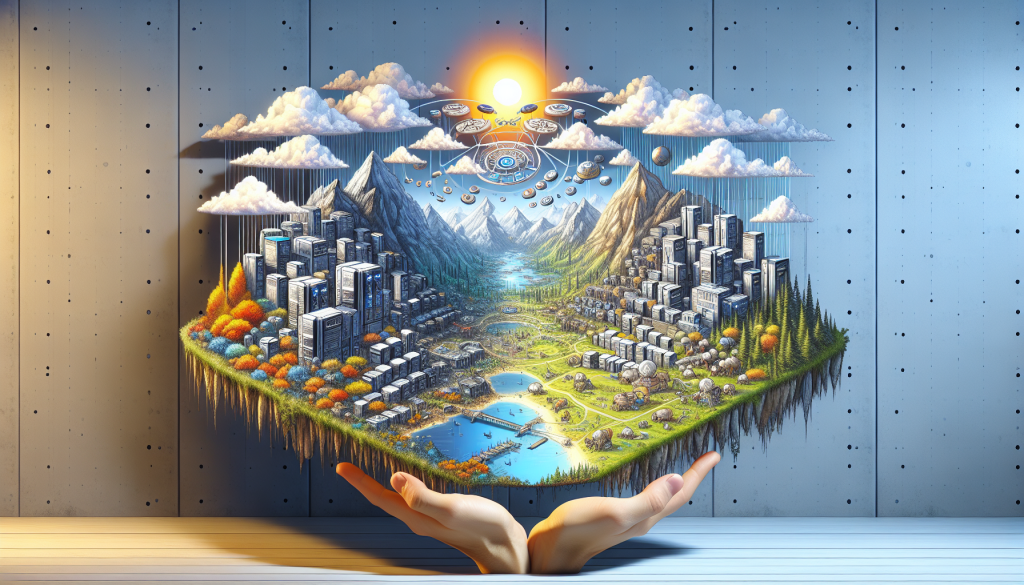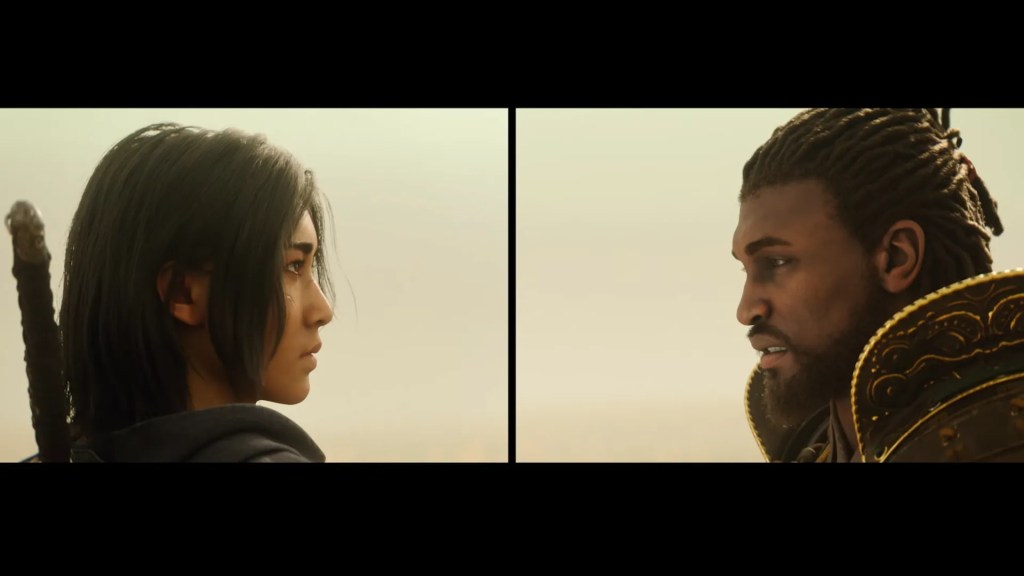Platforms: PC
Release Date: Out Now!
Developer: Daedalic Entertainment
Publisher: Lace Mambe
Singleplayer: Yes
Multiplayer: No
Thanks to Lace Mamba for providing a copy of this game for review.
Although they may never reach the monstrous heights of Call of Duty, point and click adventure games have a small but extremely loving and dedicated core audience, a group of people who all share a passion for the classic genre that gave birth to such things as the Monkey Island franchise. It’s a community that I’m proud to count myself amongst: I love the point and click genre. Only this month I played through Discworld, Discworld II and Discworld Noir. However, despite this love of the genre I find myself avoiding many of the modern examples released, simply because I find so few of them manage to capture the same charm that made the originals so great. Deponia, though, is different, and I couldn’t help but request a copy of the game to review. I’m glad I did.
Above all else, Deponia is a labor of love, carefully crafted as an homage to those classic point and click games that I grew up with while somehow still managing to retain a modern vibe, despite having left the age-old gameplay formula almost completely untouched. From the start of its ten-hour journey to the end, this feels like a game created by people with a passion for the genre, and an understanding of what made it work, of what made it so great, of what makes it so beloved by its fans. And that’s truly impressive, because there’s really no magic formula that Daedalic could have used to replicate the magnetic attraction that games like Escape from Monkey Island or Discworld exhibited. They simply have a passion for point and click games, and because of that, Deponia is something truly fantastic. But enough of this, because I could happily wax lyrical about the game all day, and what use would that really be to you without some details as to why it’s actually so good? Absolutely none at all, so here we go.
And where better to start than with the very thing you’re most likely to notice first about Deponia, whether you’ve seen the box in your local game shop or you’re looking at the screenshots in this review: the art-style. From start to finish everything in Deponia has been hand-drawn by the boys and girls at Daedalic in a unique and vibrant style that makes it stand out from the crowd. Above all else it’s a quirky visual style that matches the…..uh, quirky vibe of the game absolutely perfectly, seamlessly blending in with the humour, story and characters that make this game so great. Like any truly unique art-style, it’s not going to be to everyone’s taste, and that’s understandable, yet to this gamer there is no other way to describe Deponia than beautiful. From the stunning environments filled with detail to the fantastic character designs that ooze personality and the fluid animations that drive every scene, this is visual eye-candy of the highest order, demanding that you simply take the time to appreciate each and every location that you encounter on your journey. And playing throughout all of this is the games rather lovely backing music which sets the mood brilliantly and again matches the overall tone of the game perfectly. These backing tunes, while nothing truly amazing or groundbreaking, are balanced well, never forcing themselves into the game but rather just sitting in the background enhancing the overall feel, mostly through soothing tunes, but occasionally with a nice blast of drama. And then there’s the epic ballads that appear just a few times throughout the game but that always entertain. Words can’t really do them justice: they’re just funny as hell. Even if you don’t plan on ever playing Deponia, I recommend heading on to Youtube and looking them up. Someone is sure to have uploaded them.
The graphics and sound come together to tell the hilarious tale of Rufus, a self-centred, lazy, genius-but-stupid, know-it-all who lives in the town of Kuvaq on Deponia, a planet covered in nothing but junk and garbage as far as the eye can see. The residents of Kuvaq literally walk on junk, build things out of junk, sleep next to and on junk, and eat pretty much garbage. Due to the fact that Rufus refuses to get a job, lounges around and is generally a pain in the ass to talk to, he’s rather disliked in the town. Understandably, then, Rufus hates Deponia and Kuvaq with a passion, which is why he’s constantly coming up with insane schemes to escape the planet to Elysium, a giant floating city that hangs high above Deponia where he can finally escape the junk and lead a better life where he’s not surrounded by morons, which is how he views the rest of the inhabitants of Kuvaq. Unhappily for Rufus, his schemes usually fail miserably, often resulting in him getting himself or other people hurt. In fact, Rufus alone is responsible for pretty much all the crime and accidents in the town of Kuvaq, with the majority of his ingenious plans ending with an explosion, which is yet another reason why the majority of the townspeople barely put up with him, though logic would suggest that they should have chucked him out long ago. Despite his numerous flaws and complete lack of manners, Rufus is an oddly endearing and charming character to play. That’s not to say some people won’t find him to be a hard lead character to like, though: given his personality flaws and the fact that he’s a bit of a douche, albeit not actually a douche in the sense that he deliberately sets out to harm people, it’s understandable that some people may simply not like him, nor feel that he actually deserves to achieve his goal of getting off of the junk pile that is Deponia. But to me Rufus proved to be a fantastic and often fascinating character: his constant quips, gripes and comments always had me laughing, but it was really the glimpses of other facets of his personality that had me hooked. Play the game from start to finish and you’ll learn his reasons for the way he is. Best of all, along the way his personality begins to change: it’s subtle, done so as to never turn the game into a soap opera that buries the humour, but it’s there. In his own little way, he exhibits some true heroism and bravery. In his own little way. Sadly, though, Rufus’ own personality arc is never fully explored by the end of the game, which is where the source of one of my few complaints of the game lies, but more on that toward the end of this review, because Deponia is a the first in what is planned to be a trilogy.
We pick up our titular hero at the start of the game where he is currently living with his ex-girlfriend, Toni, and planning his latest genius-but-not-quite-genius escape plan. Exactly how Rufus managed to acquire a girlfriend is something of a mystery, but now that they’ve broken up Toni likes to throw plenty of snarky comments about his attitude around, yet somehow still tolerates him living in her house, even though he never washes the dishes or actually helps at all. After a bit of basic puzzle solving that serves as a gentle introduction to the games mechanics, Rufus puts his plan into action by using a giant harpoon to fire himself, in a safety pod, at a passing Elyosian cruiser. Some insanity ensues and Rufus ends up back in Kuvaq with a beautiful Elyosian girl called Goal. I don’t really want to go further into the storyline for fear of spoiling it, but suffice to say that Rufus finds himself amidst a massive conspiracy. But really at the core, Deponia is a love story, and a massively funny, entertaining and well told one at that. Rufus’ journey is nothing short of hilarious and features some outstanding voice-acting, only let down by the occasional bit of clumsy dialog. Admittedly there’s a few plot holes to be found along the way, but overall Deponia tells a tale that is hugely satisfying from start to finish, and that largely comes down to two things: its characters and its sense of humour.
Deponia features a cast of quirky misfits, including Rufus himself, with a diverse range of personalities, and all of them are downright hilarious, boasting splendidoice acting. In the town of Kuvaq alone you’ll encounter the rather odd Gizmo, who acts as the towns policeman, fireman and doctor, Rufus’ ex-girlfriend Toni who simply loves to rag on our hero, Wenzel, who is the closest thing to a friend Rufus actually has, and the rather strange receptionist at the town hall who is…..eh, well, to tell the truth, I’m not entirely sure what she or he actually is. It’s up for debate, really. The point I’m trying to make is that the characters you meet throughout the game are a funny and charming bunch. It’s their dialog with Rufus during your adventure that provides much of the comedy in the game, be it from Toni’s stories about Rufus’ many misadventures or Gizmo talking about how Rufus is responsible for pretty much every bit of crime and destruction around the town. It’s just a shame we never get to spend more time with these characters as they are fairly one-dimensional: you can just tell there’s more there that could have been done with them, but for what they are they do their job perfectly. And of course we can’t forget Rufus himself: his many comments when working on puzzles, about objects, people and place, and about everything in general are almost always snigger-worthy. To cut a long and…..er, well, simple, story short, Deponia is a game that rarely failed to have me smiling, giggling inanely or flat-out laughing throughout its entirety.
But enough babbling and about story and such, how does the bloody thing actually play!? Well, in a nutshell, it’s pretty freakin’ awesome. In the modern world of videogames where we’re constantly complaining about there not being enough innovation, point and click titles stand as a rare and unusual exception: they don’t really need to be changed. They are what they are, and Daedalic understand this, having stuck to the classic formula almost perfectly when crafting the puzzles that make up the vast majority of the game. Most importantly in a game such as this, the puzzles all make sense within the context of game, something which many other such titles have failed to get right in the past. The puzzles here follow a logic that makes sense in the world of Deponia and rarely ever stumbles over the line into more obscure solutions that don’t make much sense within the game world’s own logic, leaving you just mindlessly clicking on things until something happens. No, all puzzles in Deponia are based entirely in logic: sure, the solutions are often wacky and require you think outside of the box a little, but they do make sense, and as such it makes solving them immensely satisfying and fun. They also strike a beautiful difficulty balance, never being too easy to solve yet never too frustrating, either. In fact, Deponia’s gameplay is amongst the finest of the genre, keeping me thoroughly entertained throughout.
But whoah, let’s just stop and assume for a sec that you don’t actually know what a point and click game is, that you’re a new generation gamer raised on Battlefield, Forza, Halo and some other random title of your choice and have absolutely no knowledge of how the gameplay in a point and click game works. Well, as the name of the genre suggests you’ll largely be using the mouse to navigate the game and solve its many puzzle y picking up objects, combining objects, talking to people and on occasionally playing a mini-game, such putting together a jigsaw puzzle of shards. You can’t die in Deponia, nor can you actually fail: at most you can simply get stuck on a puzzle, unable to figure out the solution and thereby unable to progress, leaving you to live out the rest of your sad existence in the knowledge that your just weren’t smart enough. Or you could just look up a walkthrough. This concept of gameplay may seem strange to those who play nought but Call of Duty every day, but I challenge you to play Deponia for an hour and not find yourself hooked on the addictive puzzle solving.
Deponia also features a neat trick that I’ve been wanting for point and click games since the dawn of freaking time, but that for some obscure reason developers never implemented: a button that shows interactable objects in the environment. Simply hold down the spacebar, henceforth known as the magic button, and any object that can be interacted with will be highlighted for your convenience. This is especially handy in Deponia because while the graphics are entrancing, they do sometimes make it a bit awkward to tell what is an interactable object and what is not. This magic button eliminates one problem that has long plagued the genre: that of clicking on absolutely everything in the screen to find things. Diehard fans of the genre may argue that doing this was somehow part of the charm of these games and that the magic button ruins this, to which I say two things: the first is that you’re nuts, and the second is that you can simply not press the magic button, leaving you to happily wear out your mouse.
Now, as I come to the end of this review, I must talk about the only real weakness in Deponia’s junk crafted armor. The last quarter of the Deponia’s otherwise fantastic adventure felt weaker than the rest of the game. It was still fun, make no mistake, yet still weaker, with pretty easy puzzles to solve that didn’t feel as memorable. But the biggest problem here is the game’s ending: it just sort of stops. Again, this is because Deponia is the first in a planned trilogy, so we always knew it was going to end in a cliffhanger of some description, but the games finale just felt weak in comparison to the rest of the story. Everything is going well up until the final few scenes: there’s a dramatic build up, plenty of tension and there’s some neat plot twists that left me feeling all surprised and whatnot. It’s actually sort of emotional as I was well invested in the characters of Rufus and Goal by this point, but then it just sort of ends with no real closure. Obviously this is so it can continue into the second game, but it’s a disappointing way to round out an otherwise highly enjoyable tale of love and conspiracy and stupidity. Even cliffhanger endings need some sort of wrap-up and Deponia just doesn’t have that, leaving you with a bunch of questions at the last-minute and zero answers to any of them. Yeah, I know you guys at Daedalic want to go into the second game with the promise of answers, but damn it, at least give me something! It built up to this fantastic ending, and then in the last few scenes it leaves you hanging with the immortal words, “The End…?”
But aside from that ending, Deponia is a game with few flaws. It’s a creation of love from the boys and girls at Daedalic, displaying a true passion for a genre which that still lives in the hearts and minds of many. The puzzles are fun to solve, the game is beautiful to look at, the story is witty and charming, and Rufus might just win the prize for most likeable douche in history. In short, if you love the point and click genre you have no excuse not to play Deponia, and if you’ve never played a point and click game in your life, then now is a good time to start.
The Good:
+Sweet aunt Petunia on a cracker does this game look good!
+ Solving puzzles makes me feel all smart and suchlike.
+ Rufus is a lovable idiot.
+ The story is great.
The Bad:
– “The End…?”
– Slightly weak final quarter.
– Some clumsy dialog.
The Score:
Graphics: 10
Maybe this style won’t suit you personally, but to me this is a gorgeous game to look, filled with detail, color and creativity.
Sound: 9
Superb voice acting throughout, and the backing music does its job wonderfully. Also, the ballads are just awesome.
Story: 9
Perhaps not always as much character developement as I would have liked, but this is a story filled with wit and charming characters that had me invested from start to finish.
Gameplay: 9
At the top of the point and click genre without a doubt. But if you have played the genre quite a bit, then you’ve already seen everything here, it just does it all very well.
Lifespan: 8
At roughly 8-10 hours, depending on the type of mind you have, it’s a good lenght. Obviously, though, zero replay value.
The Verdict: 9
As somebody who has often avoided modern point and click adventure games because they failed to capture the essence of the genre, I can safely say that Daedalic have created a stunning, funny, entertaining and beautiful example of the genre at its best in Deponia.










